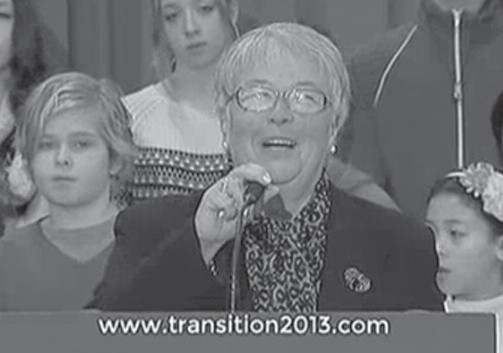Pols Urge de Blasio To Kill Glendale Plan
With new leadership at City Hall and at the Department of Homeless Services (DHS), local lawmakers are making an enhanced effort at thwarting plans to construct a transitional housing shelter for up to 125 families in Glendale.

The Times Newsweekly received a copy of a letter sent last Monday, Jan. 6, by Assemblymen Andrew Hevesi and Mike Miller, Rep. Grace Meng and City Council Member Elizabeth Crowley to Mayor Bill de Blasio and new DHS Commissioner Gilbert Taylor reiterating their opposition to the proposal shelter to be located at 78-16 Cooper Ave., a long-vacant industrial facility.
While the letter categorically took issue with many of the reasons DHS previously stated the site was suitable for a shelter, a second missive to de Blasio signed by Assemblyman Miller and State Sen. Joseph a shelter is composed of a mother and two kids, though situations may vary.
He said that the city would give priority to homeless families from Community Board 5.
“These are neighbors,” Giannelli said .
A spokesperson from the city’s Department of Homeless Services (DHS) confirmed the agency “aims to place families near their support systems as not to disrupt their lives or their childrens’ schooling.”
Giannelli explained that the children Board 5 families are already attending school in the district, and would not create an additional burden on overcrowded schools.
Still, the shelter is meant to house 125 families, so more tenants may come from outside of Board 5, which could put a strain on city services, Giordano said.
The district manager also noted that most families live in the shelter a short time-about a year-before they are placed in permanent residences or are able to support themselves.
In December 2013, a DHS spokesperson told this paper the average stay in transitional housing is 12-13 months.
The site is the former home of a glass manufacturer and is adjacent to a factory that produced dry-cleaning chemicals and caused significant environmental damage.
Some residents expressed concern that taxpayers would have to foot the bill if regulators decide the site needs to be remediated before it is habitable.
Giordano said that cost would fall on the property owner. The city would pay $110 per family per day for operational costs, resulting in a $25 million outlay over the proposed five-year contract. Giordano noted the city would not pay for construction costs.
Samaritan village is seeking a maximum $27 million contract with the city to operate the shelter for five years. If the contract is inked, it will include an option to renew for four years after the initial term is up.
The city is legally obligated to house the homeless under Article 17 of the New York State constitution, it was noted.
Giannelli said that Addabbo’s office has reached out to the new DHS commissioner, Gilbert Taylor, but is still awaiting a response.
Giannelli indicated there is probably little that a new commissioner could do, because the city is legally obligated to house the homeless.
The next Middle Village Property Owners/Residents Association meeting is scheduled to take place on Monday, Feb. 10, at 7:30 p.m. at St. Margaret Parish Hall, located on 79th Place south of Juniper Valley Road.


































